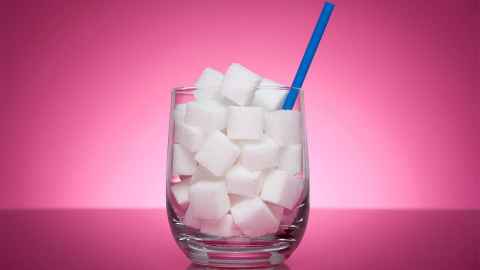Bodo Lang: Why are we still selling sickness in schools?
30 May 2022
Marketing expert Bodo Lang is calling time on the sale of sugar-laden drinks in schools.

A regulatory gap that's allowing drinks loaded with sugar to be sold to children in schools must be closed, says University of Auckland marketing expert Bodo Lang.
The associate professor is speaking out this week, imploring anyone concerned for the health of Aotearoa's young people to share their feedback on a Ministry of Education proposal regarding the provision of fizzy drinks in schools.
"The consultation closes this Thursday, 2 June and I'm encouraging people to submit. At the moment, we are selling sickness in schools – we aren't protecting our most vulnerable consumers."
On 7 April, Minister of Education Chris Hipkins opened public consultation on the proposal for primary schools to only offer healthy drinks. However, many experts, including Lang, say the proposal doesn't go far enough.
"It needs to extend to intermediate and high schools as well."
Lang has been involved in several research projects with colleagues from public health around the marketing and outcomes of selling fizzy drinks to young people and says that limiting sugary drink consumption in schools will likely prevent the decay of thousands of children's teeth, reduce obesity, diabetes and a host of other diseases. In turn, this will reduce individual suffering and save tens of millions of dollars of taxpayer money.
"Research has shown that the availability of a product is a major driver of a product's success. If something is widely available, it will likely flourish. Conversely, if a product is not easily available, particularly because of legislation, then that product will be bought far less frequently and its harms are reduced. Tobacco, guns, and illicit drugs are examples of this."

So why are fizzy drinks still within arm's reach of many young people?
Lang says that although the New Zealand Beverage Council, which represents industry frontrunners including Coca Cola Amatil NZ, introduced a policy committing their members to sell only bottled water to primary and intermediate schools and not to sell sugar-sweetened carbonated soft drinks or energy drinks to secondary schools, the policy hasn't seen the results experts had hoped for.
"The industry recognised the issues and voluntarily chose to stop selling these high-sugar fizzy drinks directly to schools. However, the mechanism in which these drinks are still available in schools is very simple – many canteens are owned and run by private operators and they buy what they think will sell."
As such, the self-imposed restriction by the industry just isn't cutting it, says Lang.
"We all need to take part in this consultation and call for Government to properly restrict the sale of these drinks in all schools."
Dr Bodo Lang is from the Department of Marketing, Faculty of Business and Economics.
Read the Proposed changes to the promotion and provision of healthy drinks in schools consultation document.
Read more about the sale of soft drinks in schools in the article by Bodo Lang, Gerhard Sundborn, Simon Thorney and Loa Veatupu, in the Australian and New Zealand Journal of Public Health: If soft drink companies can do it, why can’t government? Sugary drink sales policies in schools must be tightened.
Media Contact
Sophie Boladeras | Media adviser
M: 022 4600 388
E: sophie.boladeras@auckland.ac.nz